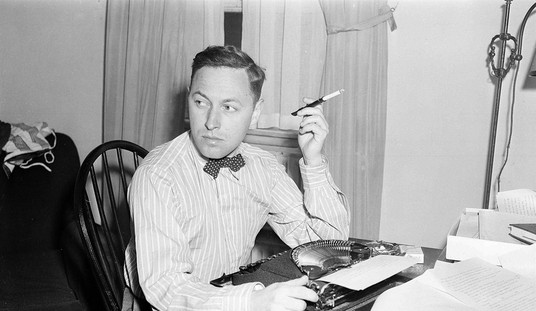Quick–who wrote this?
Even though Vietnam was a divisive war that is not yet resolved in the national consciousness, Mr. McCain can appeal to all sides. He is an inspiration to many veterans and conservatives […] At the same time, many who opposed the war can nonetheless support the man because of his personal ordeal …
This broad appeal is unique, especially because it is based on suffering rather than concrete battlefield accomplishments. […] But a closer look brings deeper insight into why most Americans have come to hold this defining experience in such great esteem. […]
But if there is insight into Mr. McCain’s leadership style, it is with the question of how he worked to normalize relations with Vietnam. To his credit, the man who is so often criticized by opponents for divisiveness succeeded in working across the widest imaginable spectrum of interests in order to bring the Vietnam War and its aftermath to a full resolution. At the same time, as in his dealings with other issues, like campaign finance reform, his relentless pursuit of a solution to the normalization question and the singularity of his approach left a trail of bruised egos and avowed revenge seekers. […]
And he created a perception in some circles that he would reach over allies to work with enemies by allying himself to Senator John Kerry, who once headed Vietnam Veterans Against the War, as well as providing political cover for President Clinton when normalization was announced.
In fact, these actions may be one reason for the rather surprising statistic that shows George W. Bush running as well among veterans as Mr. McCain himself. But the fact is, Mr. McCain succeeded, and he took the country with him. Yes, he used his prisoner of war credentials to their full impact. Certainly he could have been smarter and more respectful of the travails of others, and more conscious of buttressing his supporters as he reached out to his adversaries. But he took on the most contentious diplomatic issue of our time and pursued it to a satisfactory conclusion.
Resolving this issue may not show John McCain’s ability to unite disparate groups, but it is certainly testimony to his ability to lead.
Jim Webb in 2000, which, as Jon Henke notes, is why he’s unlikely to be Obama’s nominee for veep:
The problem is not that Webb liked McCain once and then changed his mind; the problem is that Jim Webb has made arguments that directly contradict the story the Left is trying to tell about John McCain. They don’t want to spend the next few months trying to unspin themselves on this.
Plus setting aside Webb’s views on the 1960s and their aftermath, there’s his take on the war a century earlier that may prove a challenge unpacking.










Join the conversation as a VIP Member